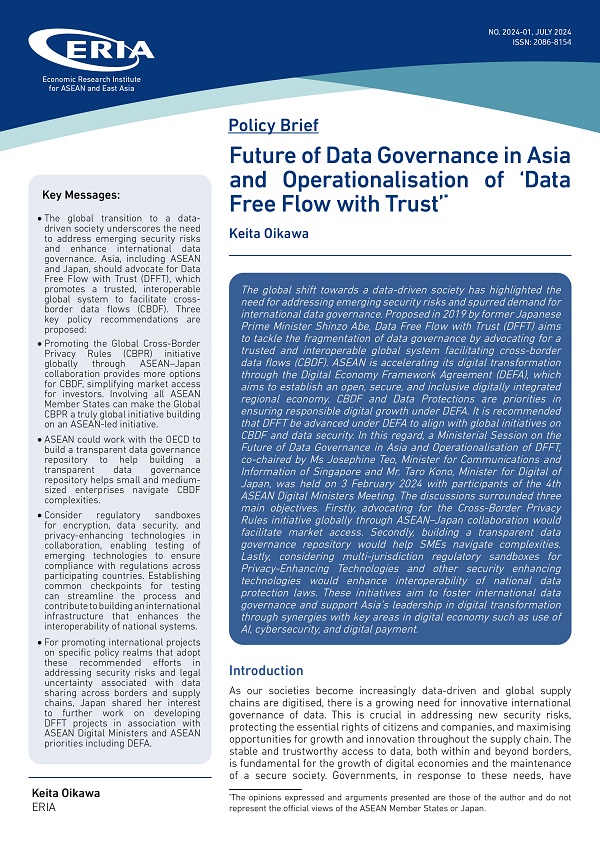Future of Data Governance in Asia and Operationalisation of ‘Data Free Flow with Trust'

Date:
5 July 2024Type:
Policy BriefsTags:
Data Governance, Data Free Flow with Trust, DFFT, Digital Transformation, Data Protection, Digital EconomyPrint Article:
The global shift towards a data-driven society has highlighted the need for addressing emerging security risks and spurred demand for international data governance. Proposed in 2019 by former Japanese Prime Minister Shinzo Abe, Data Free Flow with Trust (DFFT) aims to tackle the fragmentation of data governance by advocating for a trusted and interoperable global system facilitating cross-border data flows (CBDF). ASEAN is accelerating its digital transformation through the Digital Economy Framework Agreement (DEFA), which aims to establish an open, secure, and inclusive digitally integrated regional economy. CBDF and Data Protections are priorities in ensuring responsible digital growth under DEFA. It is recommended that DFFT be advanced under DEFA to align with global initiatives on CBDF and data security. In this regard, a Ministerial Session on the Future of Data Governance in Asia and Operationalisation of DFFT, co-chaired by Ms Josephine Teo, Minister for Communications and Information of Singapore and Mr. Taro Kono, Minister for Digital of Japan, was held on 3 February 2024 with participants of the 4th ASEAN Digital Ministers Meeting. The discussions surrounded three main objectives. Firstly, advocating for the Cross-Border Privacy Rules initiative globally through ASEAN–Japan collaboration would facilitate market access. Secondly, building a transparent data governance repository would help SMEs navigate complexities. Lastly, considering multi-jurisdiction regulatory sandboxes for Privacy-Enhancing Technologies and other security enhancing technologies would enhance interoperability of national data protection laws. These initiatives aim to foster international data governance and support Asia’s leadership in digital transformation through synergies with key areas in digital economy such as use of AI, cybersecurity, and digital payment.




